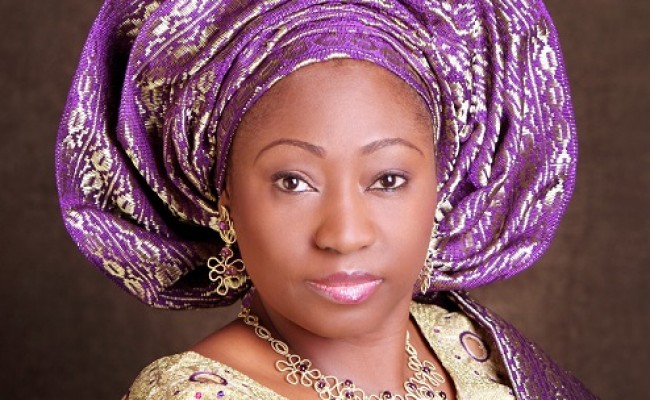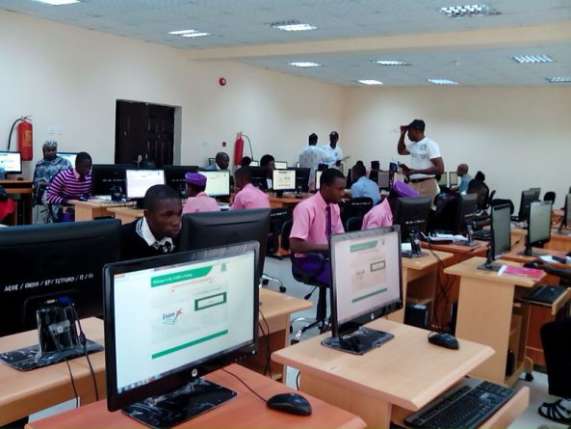Six Million Girls Lack Access to Education In Nigeria, Regrets Ekiti First Lady
The wife of Ekiti State Governor, Erelu Bisi Fayemi, on Thursday bemoaned the increasing number of out of school children in the country.
The Ekiti first Lady , said available statistics indicated that the girl children accounted for over six million out of the 10.5 million that lack access to formal education in the country.
Revealing that women political representations at the National Assembly and other levels of were abysmal, predicted that with the gradual conscious efforts being made to sensitize women that she foresees a better representation in the future elections.
Mrs Fayemi spoke on Thursday while a 5th Distinguished lecture entitled: Clapping With One Hand: ‘Female Education, Leadership and the Quest for National Development at the University of Medical Sciences, Ondo city, Ondo State.
Mrs Fayemi, according to a copy of the lecture made available to newsmen in Ado Ekiti, said the level of insecurity in the Northeast region of the country and incessant kidnapping of children and young girls, had affected education of many children and these , she said would have a dire implication on the future of Nigeria.
She added that despite their successes and achievements, millions of women and girls still suffer from feminization of poverty, lack of access to basic resources, diseases, violent conflict and the complex use of culture, religion and tradition yo make female gender voiceless in the society .
“The activities of the Book Haram has had a devastating effect on millions of citizens, especially women and children. Their education had been affected so badly that the effect will be felt for many years to come.
” Nigeria currently had one of the highest rates of out of school children which statistics pegged at 10.5 m with female accounted for 60 percent .
“There are also 1.9m millions of Nigerians living in Internally Displaced Camps around the country and over one million of them are women ad girls , with the attendant risks this poses”.
The First lady added: ” If you look at the configuration of the national assembly since 2011, women representation has always been very bad and this has not given women to participate in setting legal framework that regulates governance .
“It was better better in 2011, dropped in 2015 , but became worse in 2019. These shouldn’t discourage us from continually demand for our right”.
She revealed that women had been in the receiving end of government’s inept disposition and lack of political will to implement laws like gender based violence prohibition law, equal opportunities law, girls child law among others to put female gender in a safety net.
On why women have not gained recognition in the Nigerian society, Mrs Fayemi , said : ” Crimes against women are on the increase. gender violence , rapes, trafficking , sexual exploitation , discrimination and kidnapping, among others. All these make the atmosphere very unsafe for women.
“Religious and cultural conservatism, inaccessible political machineries and godfather’s syndrome , lack of financial investment required for political office , violence and intimidation , are also factors that are limiting women and reducing their capacities to rise to the top”, she said.
She called for holistic implementation and enforcement of relevant laws that tend to tame gender inequality and promote women’s interest to enhance their relevance in all sectors.
Apart from the foregoing, Mrs Fayemi advised women “to seek conceptual clarity on gender and feminism, research use of legislative and policy framework , build a platform to make political demands, encourage inter generational organising , engage in resource mobilisation , make educational institution safe for female gender , prepare for leadership and build a legacy that can attract public respect”.
The Vice Chancellor of the institution, Prof Friday Okonofua, is established to revamp the medical tourism in the country and add to manpower development and as well expand the frontier of access to health services.




